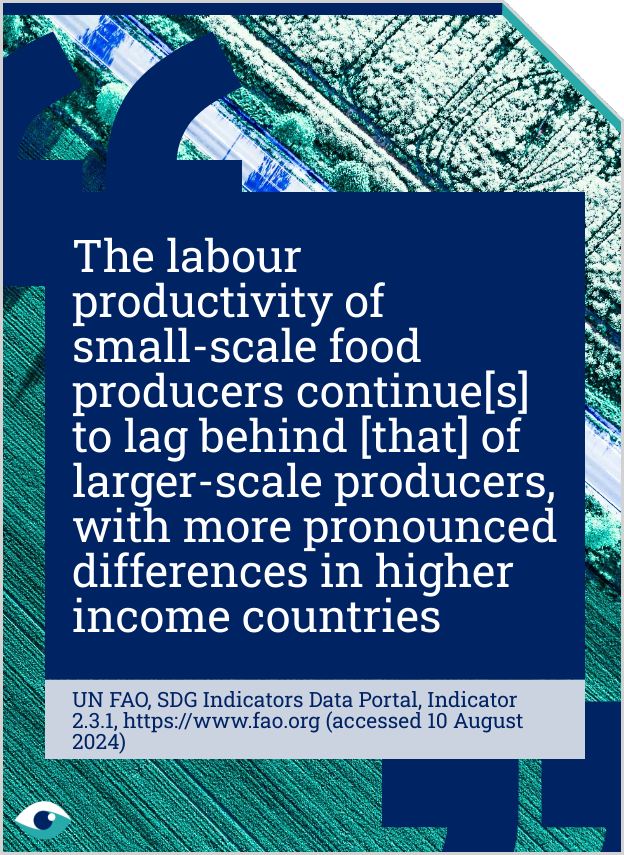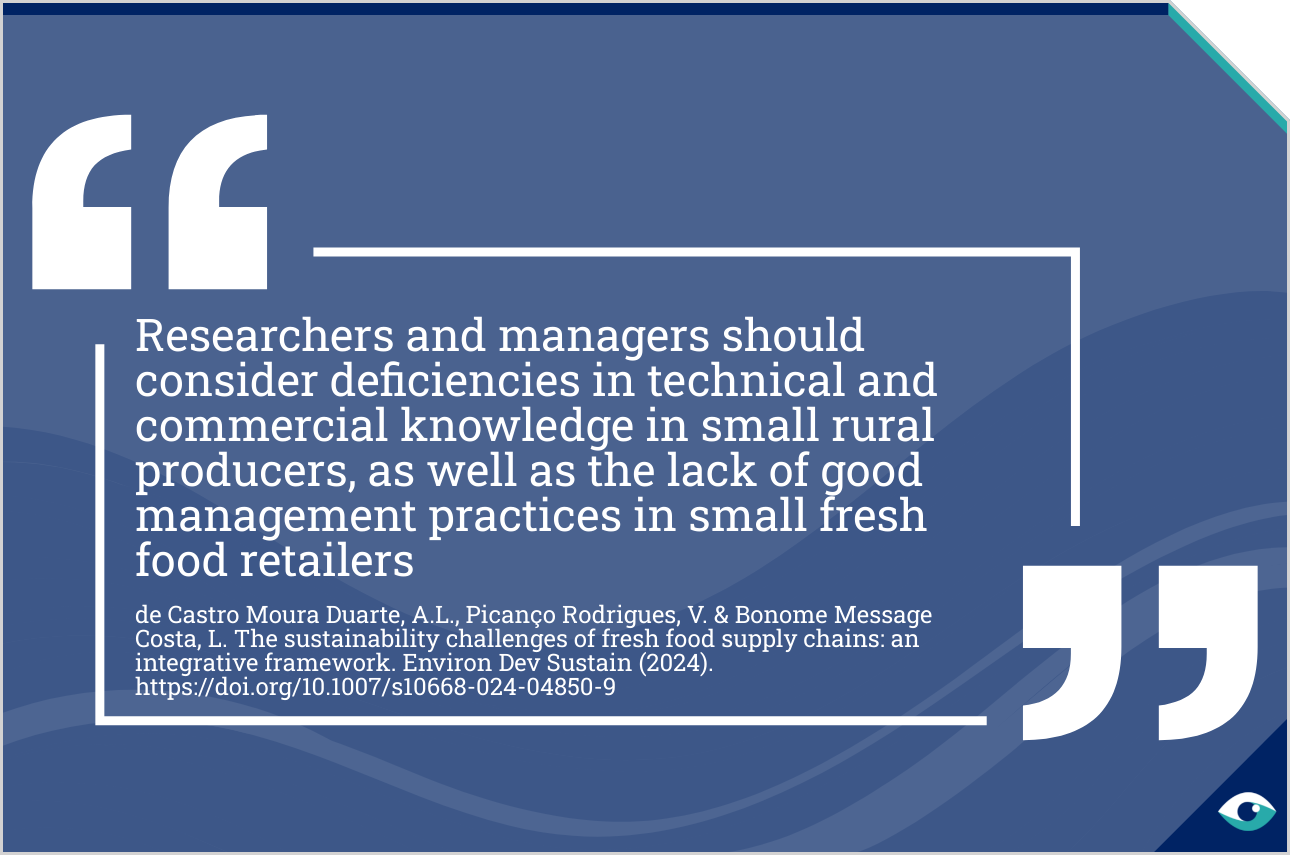A Q124 journal article in the Journal of Environment, Development and Sustainability reveals critical deficiencies in technical and commercial knowledge among small rural producers, as well as inadequate management practices in small fresh food retailers. Smallholders responsible for producing one-third of the world's food significantly lag behind larger enterprises, especially in higher-income nations. In regions like Europe and Canada, their yields are less than a quarter of those of larger counterparts. Despite these challenges, leading companies are increasingly encouraged by stakeholders and markets to integrate smallholders into their supply chains.

Sustainable sourcing: the business case for small farmers
Boosting ESG credentials by sourcing sustainably from smallholders, in alignment in SDG#2, and reducing supply chain risks
UN Sustainable Development Goals
Food & beverages (all industries)
AT A GLANCE
Integrating small-scale farmers into supply chains offers a significant sustainability opportunity for companies.
This approach is crucial for enhancing food security and meeting consumer demands for sustainable sourcing.
Over a sustained period, this strategy can strengthen resilience and ensure long-term business success.

The role of small producers
Small-scale food producers are vital for government efforts to drive national economies, eliminate hunger, reduce poverty and diminish inequality. Their contributions are integral to achieving the SDGs, particularly SDG#2, which aims to end hunger, achieve food security and promote sustainable agriculture. Despite these contributions, large food and beverage entities face increasing pressure from stakeholders to demonstrate sustainability across supply chains. This pressure forces consideration of the role of small-scale producers.
Embracing small-scale firms
Small-scale farmers often operate with lower overhead costs compared to large-scale industrial farms. This can result in lower prices for raw materials, particularly in regions where small-scale farming is dominant. Companies can leverage this cost advantage by integrating small-scale farmers into their supply chains, which helps mitigate the risk of supply chain disruptions caused by external factors, such as climate change. By supporting small-scale farmers with advanced farming technologies, companies can diversify their supply chains, thereby enhancing resilience and reducing financial risks.

Corporate actions
Leading food & beverage entities have begun taking action. For instance, Nestle is working with over 500,000 farmers to advance regenerative practices, aiming to mitigate environmental impacts. India's Mahindra & Mahindra supports SDG2.3 by providing small-scale farmers with advanced farming technologies and financial services. Associated disclosures of positive impact include improvements in yield and the extent of smallholders with secured land titles.
Value for large companies
From the perspective of leading food & beverage entities, sourcing from small-scale farmers who practice sustainable agriculture can significantly enhance ESG profiles. Successful efforts to incorporate small-scale farmers in the supply chain can attract sustainability-conscious consumers and investors, driving long-term business success and strengthening social licenses to operate.
FURTHER READING
- SDG Indicators Data Portal (FAO)
- Food Security Update (May 2024) (World Bank)
- The State of Food Security and Nutrition in the World, 2023 (FAO)
